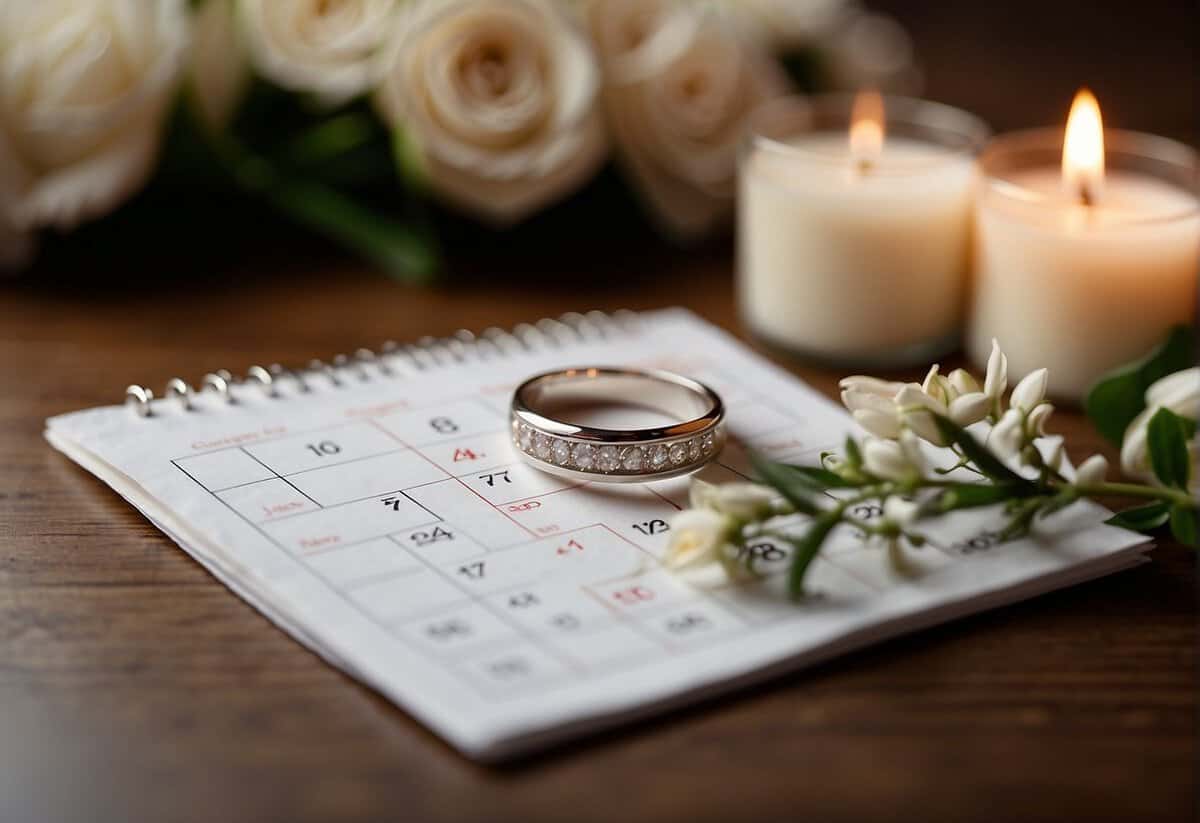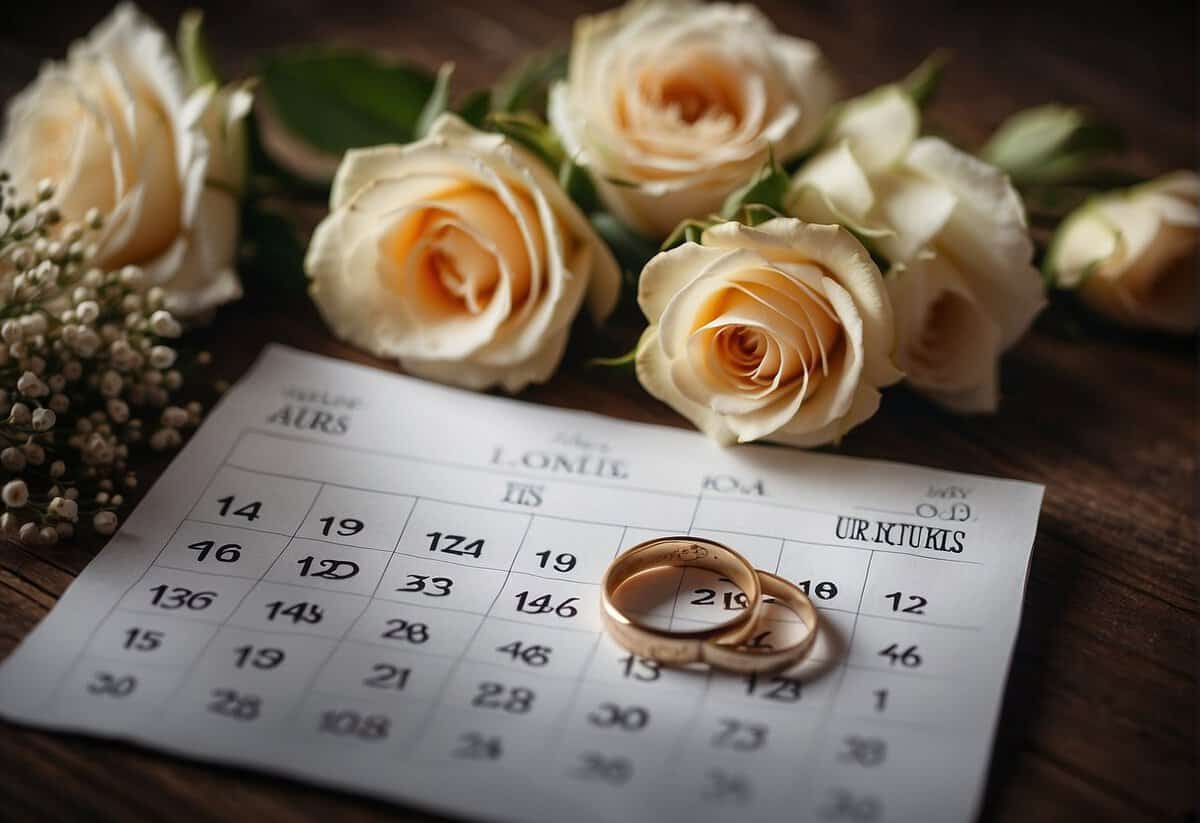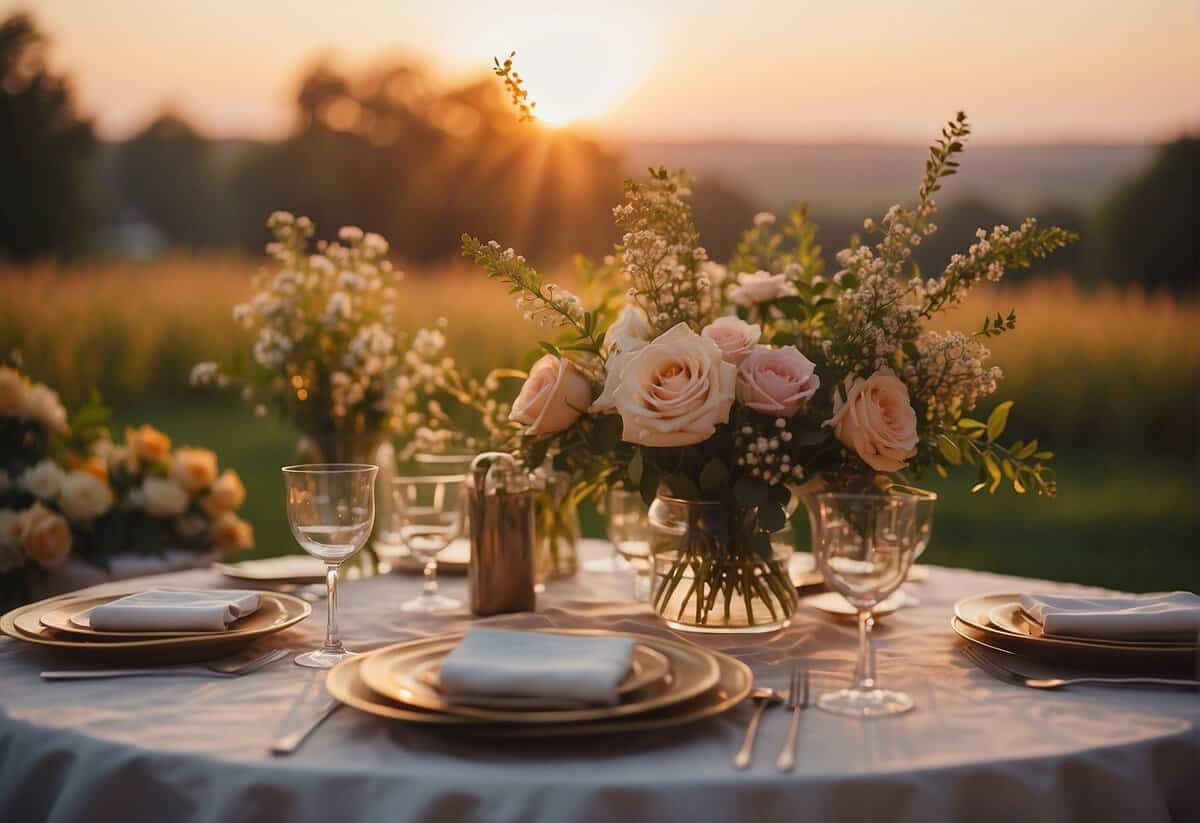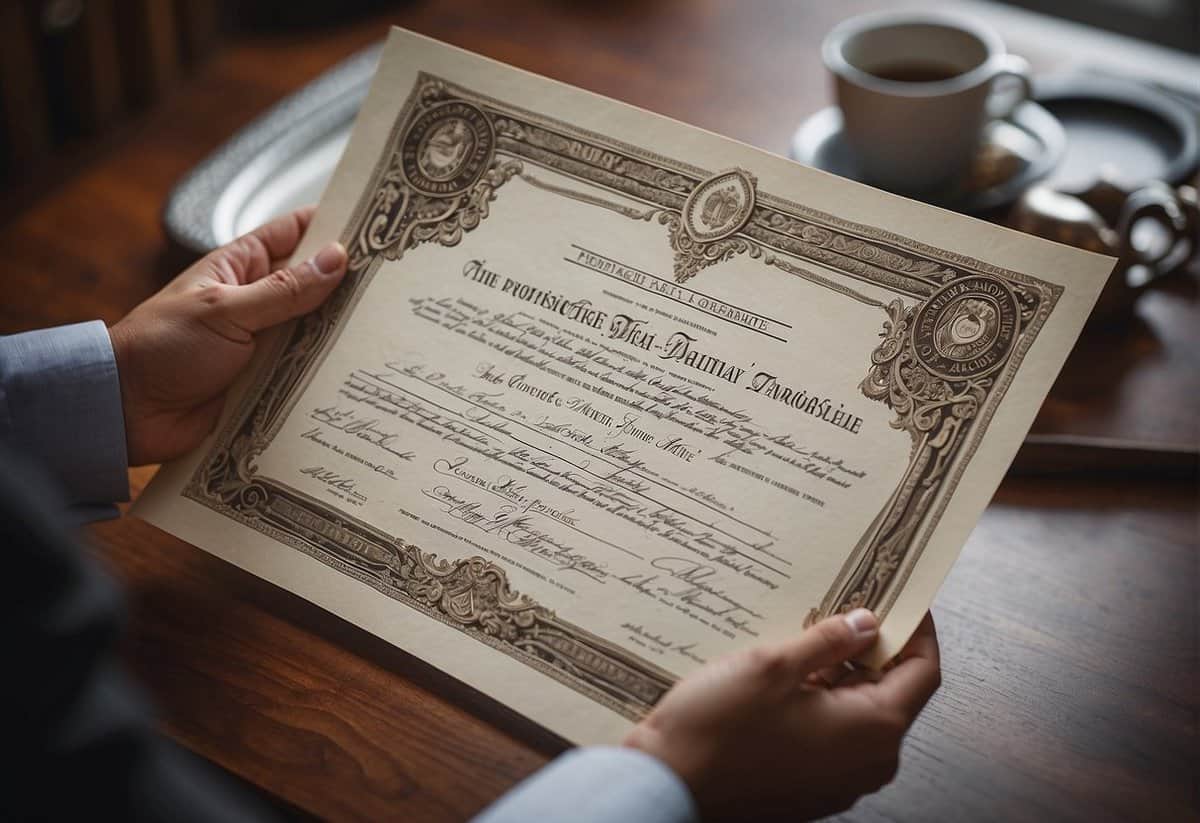Is 48 Too Old to Get Married? Debunking Age-Related Marriage Myths
Are you considering marriage at 48 or questioning if age impacts the journey to matrimony? It’s not uncommon to wonder whether there is a ‘right’ age to tie the knot, especially as society often presents mixed messages about age and romantic commitments. The truth is, the concept of an ideal age for marriage has evolved. Marrying later in life can be a result of various factors like career focus, prior relationship experiences, or simply the quest to find the right partner.

In the context of marriage, age can bring with it maturity, self-awareness, and financial stability – traits that are beneficial to fostering a strong partnership. Some may face age-related pressures or societal stereotypes, but there’s an increasing trend of people embracing nuptials later in life. It’s essential to recognize that each individual’s circumstances and readiness for marriage can greatly differ, which makes setting a universal age for marriage impractical.
Key Takeaways
- Age should not be a barrier to marriage; maturity and readiness are more significant indicators.
- Marrying at 48 can provide economic stability and a clearer sense of self, contributing to a strong relationship.
- Societal norms around marriage and age are changing, making later-in-life marriages more common and accepted.
Understanding the Right Age for Marriage

When considering the right age to get married, it’s essential to think about various factors. These can include societal expectations, your level of emotional maturity, and the stage of life you’re in. Let’s explore these aspects to help you determine the best timing for marriage.
Societal Norms and Expectations
Society often has its own ideas about when you should marry. Research from sources like Pew Research shows that the average age for marriage has been rising over the years. In the past, marrying in your early 20s was common, but today, it’s more usual to tie the knot in your late 20s or even later. You may feel pressure from family or societal norms to marry at a certain age, but it’s important to consider your own readiness and personal circumstances.
Psychological and Emotional Maturity
Emotional maturity is crucial when deciding to get married. It’s not just a number; it’s about how well you understand yourself and manage your emotions. Marrying in your late 20s or even into your midlife can be beneficial, as it often comes with increased self-awareness and life experiences that contribute to a more solid foundation for marriage. This growth can lead to better decision-making in choosing a partner and navigating relationship challenges.
Life Stage Considerations
Your stage in life also plays a significant role in determining if it’s the right time to get married. If you’re in midlife, you might have different priorities, like career stability or personal goals, which could make it an opportune time to consider marriage. It’s important to align your life stage with your partner’s and ensure that both of you are ready to commit to the changes that marriage brings. Whether it’s managing finances or planning for a family, being at a compatible life stage with your partner can help ensure a healthy marriage.
Benefits of Marrying at a Later Age

Deciding to get married at the age of 48 brings with it a host of benefits, especially in terms of your finances, career, personal growth, and the quality of your relationships. Let’s explore the advantages that waiting to tie the knot can bring to various aspects of your life.
Financial Stability and Career Growth
By the time you reach your late forties, you’ve likely achieved a level of financial stability that you may not have had in your younger years. This means you’re better equipped to handle the monetary aspects of marriage, from the wedding itself to the life that follows. Your years of work experience have probably propelled you forward in your career, possibly into senior roles or towards running your own business. This can offer a sense of security and reduce the financial stress that can come with early married life.
Personal Development and Self-Confidence
Years spent focusing on your education and personal interests allow you to enter a marriage with a strong sense of who you are. This self-confidence is essential for a healthy relationship. The wisdom and maturity that come from life experiences contribute to a more composed and self-assured approach to facing the combined life challenges that marriage can bring.
Quality of Relationships and Communication
The time you’ve spent interacting with different people throughout your career and social life aids in honing your communication skills. Having established friendships and past relationships, you bring to the table refined expectations and a better understanding of what makes relationships thrive. According to Kiplinger, marrying later often means you know more about your partner’s likes and dislikes, leading to a more lasting connection. This quality of relationships often translates into a deeply rooted partnership based on clear communication and mutual respect.
Challenges Faced by Older Couples

When you’re considering marriage at an older age, it’s essential to recognize the unique challenges you may face. From the complexities of finding a partner to navigating family dynamics, being aware of the potential obstacles is crucial for setting realistic expectations.
Navigating the Dating Scene
In your pursuit of companionship, you may find online dating has become a more practical approach, especially if you feel out of touch with the traditional dating methods. However, while it’s a convenient tool, it can also lead to feelings of ageism and frustration as many sites and apps are geared toward a younger demographic. Being single and divorced may have advantages in terms of knowing what you want, but you might also encounter potential partners carrying the weight of their past relationships, including divorce.
Dealing with Social Stigmas and Stereotypes
As you step into the dating world, you might encounter societal norms that champion youth and beauty. This can create a pressure where you feel the need to justify your desires for marriage, battling ageism and stereotypes that suggest your time for love has passed. Your resilience in such situations showcases your strength, but it’s also a reminder of the social stigmas that older couples often face.
Considerations for Family and Children
If you or your partner have children from previous relationships, blending families presents its unique set of challenges. How will you integrate your lives while maintaining harmony? Children may have concerns about inheritance, new family dynamics, or simply adjusting to a parent dating again. Clear communication and patience are vital as everyone adjusts to the idea of a new familial structure.
Legal and Cultural Considerations

When considering marriage at any age, it’s important to be aware of the legal framework that governs marriage as well as cultural expectations that might influence your decision. Let’s uncover what you should know about marriage laws related to age and how cultural practices might play a role in your journey towards matrimony.
Marriage Laws and Age Restrictions
In most of the Western world, the legal age for marriage is 18. However, with parental consent or under certain legal circumstances, individuals can marry at a younger age. This is often referred to as underage marriage. It’s crucial to consult local marriage laws as they can vary by state or country. For example, marriage laws in the United States can differ significantly from state to state, with some allowing marriage at 16 with parental consent. These laws are designed to protect younger individuals from being coerced into marriage.
- Minimum Age Without Consent: 18 years old
- Minimum Age With Consent: Varied, as low as 16 years old
- Notable Statistic: Some states have seen legislative pushes to raise the minimum age to 18 without exceptions.
Cultural Practices and Arranged Marriages
Cultural practices regarding marriage can vary widely, and in some cultures, arranged marriage is a common tradition. Arranged marriages are not solely a relic of the past; they continue to be practiced in many parts of the world, often with the belief that parents will be able to choose a suitable partner for their children.
In arranged marriages, the marriage’s success is often seen as a communal rather than an individual concern, stressing family involvement in the choice of a spouse. Statistically, arranged marriages have been common in the East, but even some Western societies have histories of arranged alliances for various reasons, including social status and economic gain.
- Arranged Marriage Fact: It’s based on a community and familial approach rather than individual choice.
- Consideration: Respect for family decisions is a high priority in cultures practicing arranged marriages.
Frequently Asked Questions

When you’re in your late 40s, you might wonder about the prospects of marriage and whether age might influence your journey. Here’s what you should know.
What are the chances of finding love and getting married after 40?
Your chances of finding love and getting married after 40 are still positive. Many people, now more than ever, are meeting significant others later in life, and statistics suggest that marrying later can lead to more stable and mature relationships.
Can a 48-year-old woman experience significant body changes affecting marriage?
Yes, a 48-year-old woman can experience body changes such as menopause, but these changes do not necessarily affect the potential for marriage. Compatibility and shared life goals are often more integral to a successful union.
How does a 48-year-old woman typically look and does it impact her prospects of marriage?
A 48-year-old woman can look as vibrant and diverse as women in any other age group. Physical appearance is subjective and personal, and shouldn’t dictate one’s prospects of marriage. Confidence and self-awareness are attractive qualities that can enhance these prospects.
What is considered too late for a woman to get married?
There’s no set age that’s considered too late for a woman to get married. Everyone’s life journey is unique, and marriage can be a beautiful choice at any age if it feels right for both partners involved.
What are the prospects of a second marriage after age 45?
The prospects of a second marriage after age 45 are encouraging as individuals often bring more clarity about what they want from a relationship based on prior experience. Second marriages can be rich with understanding and a clear sense of partnership.
Is it common for individuals to find love and marry in their late 40s?
It is becoming more common for individuals to find love and marry in their late 40s. With shifting societal norms and the rise of online dating, people are connecting and finding compatible partners well into their later years.

